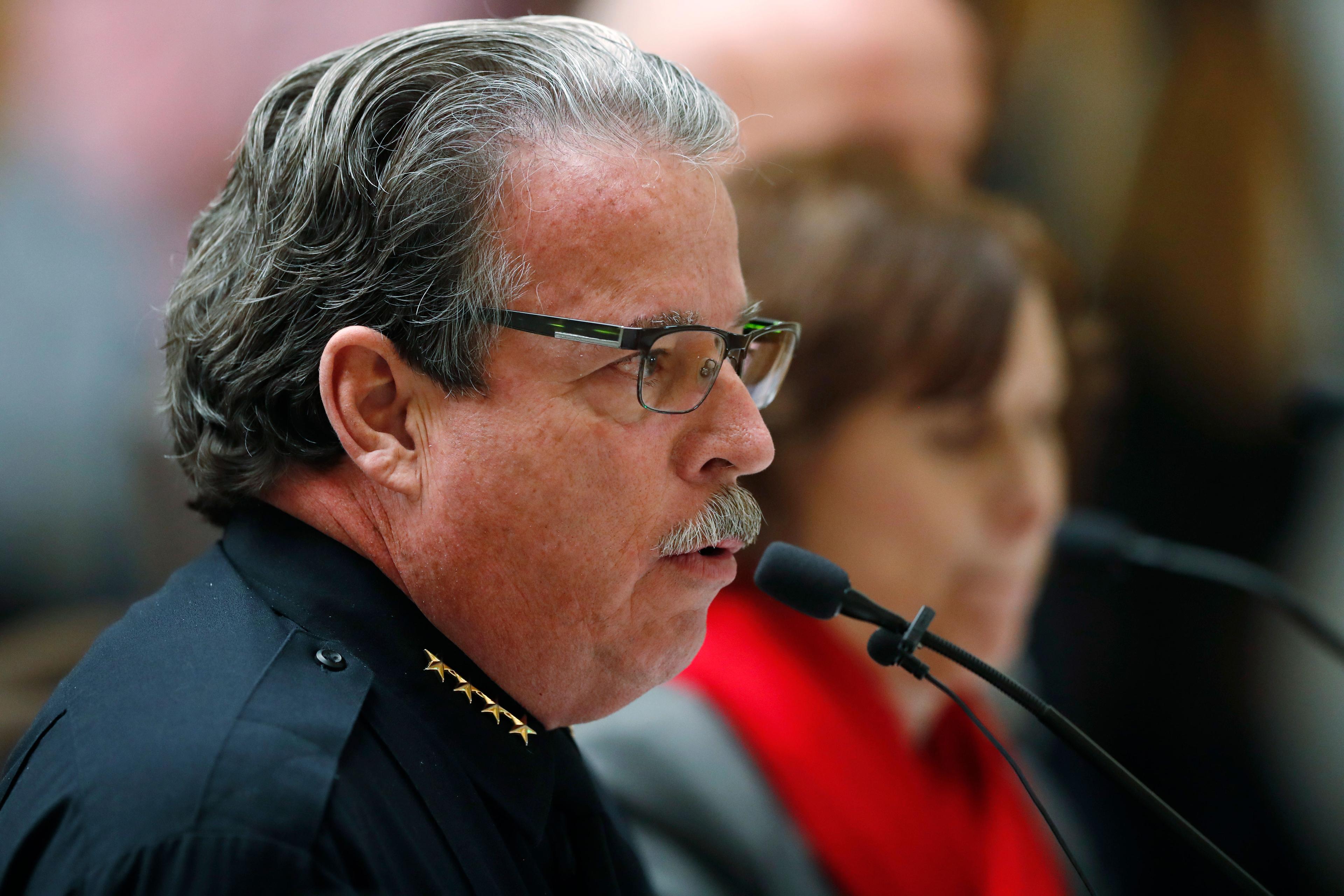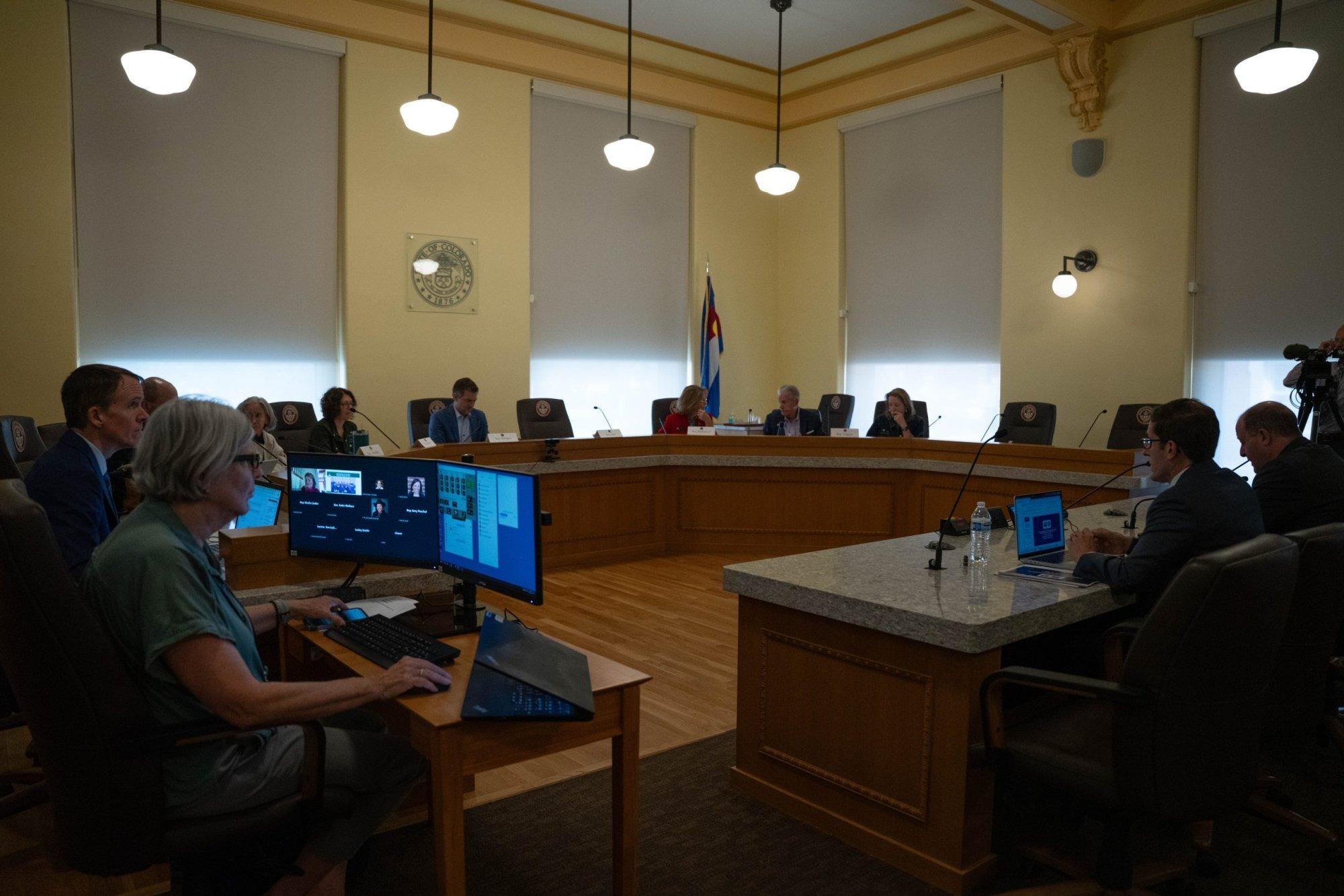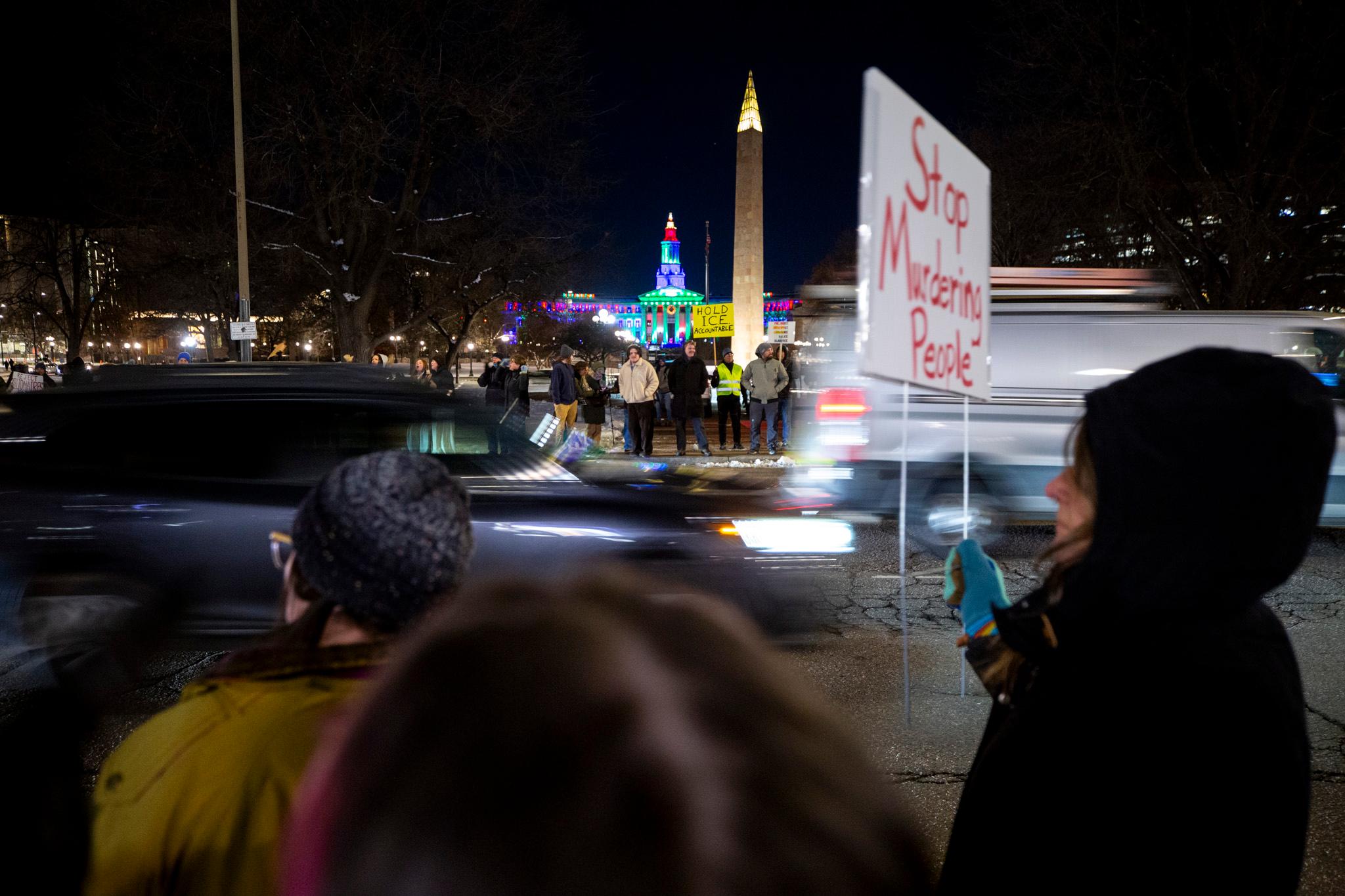

On Tuesday, both El Paso and Douglas counties joined around a dozen other counties that have passed resolutions affirming their commitment to the Second Amendment.
The resolutions vary in their wording, but they all have come in response to HB 19-1177, which would allow law enforcement to temporarily take someone’s guns if a judge concludes they are a danger to themselves or others.
In the case of Douglas County, commissioners voted unanimously to not fund enforcement of any law that violates residents' Second Amendment rights. That move puts them directly at odds with Douglas County’s Sheriff, Tony Spurlock, who is a strong supporter of the bill.
Spurlock is closely connected to the incident that in some ways began Colorado’s push for a so-called ‘red flag’ gun law.
Early in the morning of New Year’s Eve 2017, law enforcement was called to Matthew Riehl’s apartment in Highlands Ranch for a disturbance. Riehl opened fire in what Sheriff Spurlock called an “ambush-style” attack.
Deputy Zach Parrish was killed, and four other officers were wounded. Afterward it came out that Riehl had long standing mental health problems, and that his mother had tried to take his guns away, but legally couldn't.
On Tuesday, Spurlock urged county commissioners to give the red flag bill a chance.
“I would encourage you to at least … listen to the bill,” he said. “I love this county, I love this state and I have been a protector of the Constitution since I put this badge on 39 years ago.”
HB19-1177 has passed the state House and is about to start the process in the Senate. Fourteen other states, including California and Florida, already have similar policies, known as Extreme Risk Protection Orders, on their books. Research has found the laws are mostly used by families to remove guns from suicidal loved ones.
Nita Dunn of Highlands Ranch told the commission that an ERPO might have kept her brother from killing himself while going through a divorce.
“Had we been able to take away his guns, he would be alive today,” Dunn said. “I’m begging you today, stand on the side of people who are being injured. I saw what happened to my parents and I know what happened to me, and I don’t want that for anyone else.”
Many who came to encourage commissioners to vote for the resolution brought up due process concerns. The bill would allow a judge to order someone's guns taken away for up to two weeks without that person being present at the hearing.
Larkspur’s Rene Glover called that “a travesty of justice.” She told the commission she fears her abusive ex-husband would use the policy against her.
“There are no meaningful criminal penalties in this bill for lying in a petition to have someone's firearms confiscated. Nothing to stop my ex-husband from lying to a judge and law enforcement so they take away my firearms,” Glover said.
The commission sided with Glover and other bill opponents, passing the resolution unanimously.
It's unclear what will happen if Extreme Risk Protection Orders become law, but aren’t enforced in many counties. Before things get to that point though, the courts are sure to be involved. In a resolution passed by El Paso County Commissioners Tuesday, they pledged to sue to prevent the bill from taking effect.









